Pressurization System Automatic Operation - If cruise altitude is unavailable from the FMC in AUTO, the default cruise altitude is _____
Outside air is supplied to _____ electric cabin air compressors (CAC) through two dedicated inlets located in the wing to body fairings.
Outflow valve position is displayed on the EICAS display. If the outflow valve position is not available on the EICAS, holding the OUTFLOW VALVE MANUAL switch to CLOSE will result in the outflow valve being:
Holding the respective OUTFLOW VALVE MANUAL switch in the desired position for 30 seconds moves the valve from full open or closed to the selected position.
For high altitude landings, if the destination airport elevation is greater than 8,000 feet:
The cabin altitude then starts climbing to the destination airport elevation when appropriate.
Cabin pressurization is controlled by regulating the discharge of conditioned cabin air through the outflow valves.
Normally, the outflow of cabin air is split equally between these two outflow valves. Cabin altitude and full ventilation rates can be maintained by either valve.
Humidification (HUMID) Switch - The humidification system operates automatically _____ when the HUMID switch is on.
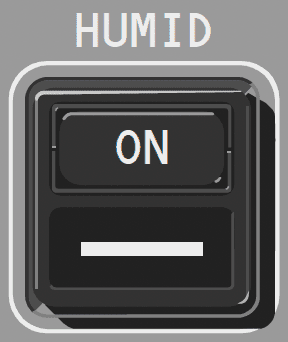
The Alternate Ventilation System (AVS) provides an alternate means of ventilating the cabin and flight deck in the event both packs are inoperative.
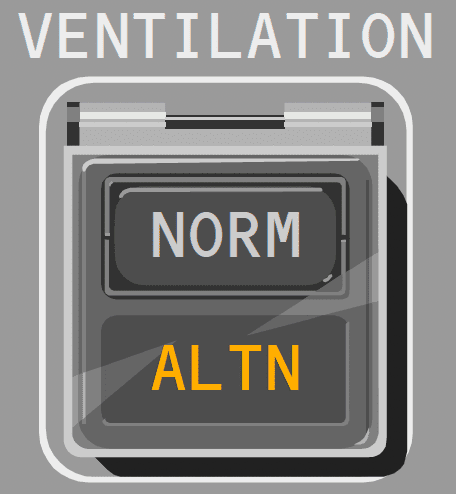
What is the true statement?
Positive and negative pressure relief valves/vents protect the fuselage against excessive pressure differential.
In standby cooling mode, pack cooling capacity may be less than in normal mode. It may result in:
Advertisement
Bleed air supplied by the engines is used for:
Forward Cargo Air Conditioning (FWD CARGO AC) Control - Provides automatic temperature control for the forward cargo compartment. If OFF is selected this disables heater and cargo refrigeration unit.
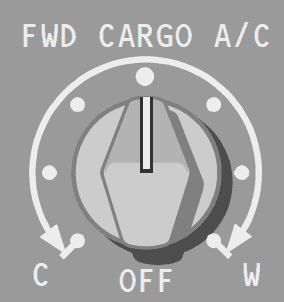
Forward Cargo Air Conditioning (FWD CARGO AC) OFF Light - If the OFF light is illuminated amber this indicates that:
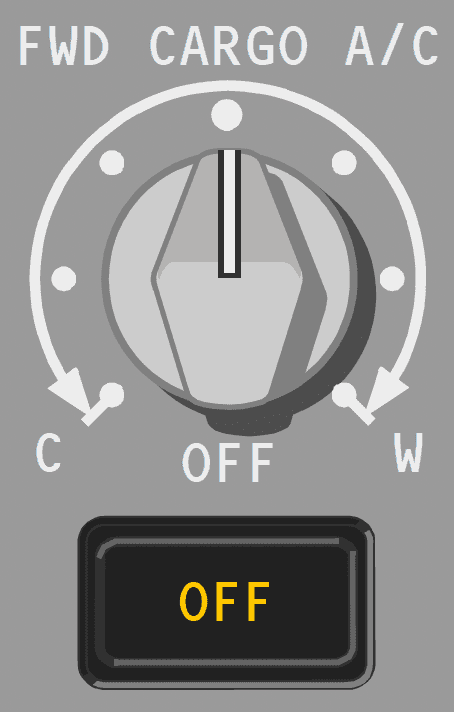
Normally, one CAC (cabin air compressor) in each pack runs when using the APU as the power source.
Air Distribution - The flight deck receives 100% conditioned outside air and the passenger cabin receives a mix of outside air and recirculated air. Some recirculated air is supplied to the flight deck if:
Pressurization System Automatic Operation - In flight, the Cabin Pressure Control System (CPCS) operates in a climb mode, a cruise mode, or a descent mode. For takeoff, the system supplies a small negative pressurization prior to rotation to cause a smooth cabin altitude transition to the cabin altitude climb schedule.
For takeoff, the system supplies a small POSITIVE pressurization prior to rotation to cause a smooth cabin altitude transition to the cabin altitude climb schedule.
Bleed air is supplied from a dedicated engine bleed port. Anti-ice valves are armed when the ENGINE ANTI-ICE selectors are placed to AUTO.
These valves open when the ice detection system detects icing conditions or the selector is set to ON.
During engine start, CACs are commanded off and pack do not (re)start until:
If both engines are started together, and the two minute limit is met, packs restart immediately after the second engine is running.
Operation With Loss of Cabin Pressurization - The CPCS system prevents the cabin altitude from exceeding _____ in the event of any probable failure or malfunction in the pressurization system.
Operation With Loss of Landing Altitude - If landing altitude is unavailable from the FMC, and not set in MAN, the EICAS advisory message LANDING ALTITUDE is displayed and the cabin altitude controller assumes a landing altitude of:
Advertisement
On the ground:
To maximize system efficiency, only one CAC on each side runs when using the APU as the power source.
The Alternate Ventilation System (AVS) provides an alternate means of ventilating the cabin and flight deck when:

The CACs (Cabin Air Compressors) draw the air from outside and release it at a low pressure but high temperature to the heat exchanger.
The CACs draw the air from outside and release it at a HIGH pressure and HOT temperature to the heat exchanger.
During cold weather operations both CACs (Cabin Air Compressors) in each pack are commanded on.
In the override mode, the forward cargo heat and overboard vent valves are closed, the vent fan and both supply fans are commanded off, and the forward equipment cooling override valve is commanded to the override position.
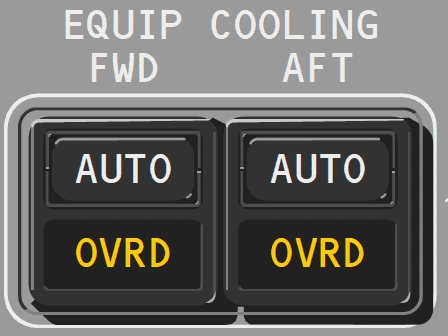
During ground operations the use of external power to power air conditioning packs is recommended.
Use of external power to power air conditioning packs is NOT recommended. A ground source of conditioned air can be used to supply conditioned air directly to the cabin distribution system.
The air is pressurized and flow-regulated by the CACs (Cabin Air Compressors) and supplied to two identical air conditioning packs. Two CACs are dedicated to each pack. A single CAC provides sufficient air to operate its associated pack in all operating modes. Packs are controlled by:
Humidification (HUMID) Switch - The switch is automatically switched off approximately _____.

Miscellaneous Equipment Cooling System - The miscellaneous equipment cooling system provides cooling to equipment located in various areas of the airplane. This includes IFE equipment as well as other non-essential equipment located in the crown and areas of the lower lobe not cooled by other equipment cooling systems. Miscellaneous cooling system power can be removed using the:
Operation is fully automatic and powered on whenever the airplane is powered.
The air conditioning system supplies conditioned outside air and recirculated cabin air at a controlled temperature throughout the airplane. The airplane is divided into seven temperature zones: the flight deck and six passenger cabin zones.
Advertisement
Pressurization System Automatic Operation - In the cruise mode, the cabin altitude is normally at or below _____
Turning the recirculation fans off:
The air is then pressurized and flow-regulated by the cabin air compressors (CACs) and supplied to two identical air conditioning packs. One CAC is dedicated to each pack. A single CAC provides sufficient air to operate its associated pack in all operating modes.
Two CACs are dedicated to each pack.
BULK CARGO TEMP Switch - The AUTO selection will permit the bulk cargo heat system targeting:

A single CAC (Cabin Air Compressor) provides sufficient air to operate its associated pack in all operating modes.
Packs are controlled by two identical pack control systems. If one system fails, pack control automatically switches to the other system.
Forward Cargo Air Conditioning (FWD CARGO AC) Control - Provides automatic temperature control for the forward cargo compartment. Mid position (12 o'clock) sets approximately:

OUTFLOW VALVE (FWD and AFT) Switches - if MAN (manual) is illuminated amber:

Both air conditioning packs are normally selected to AUTO for ground operations. Each pack uses a ram fan to draw air through the ram air system for ground operation cooling when:
Normally, one CAC in each pack runs when using the APU as the power source.
If a pack overheat is detected in flight:
The EICAS advisory message PACK (L, R) is displayed. An attempt to restore pack operation may be made by pressing the AIR COND RESET switch at or below 34,000 feet.
During normal ground operations and landing phases of flight, deflector doors deploy in front of the cabin air compressors (CAC) inlets to prevent debris from entering the CACs. These deflector doors may retract on the ground when ambient air temperature is:
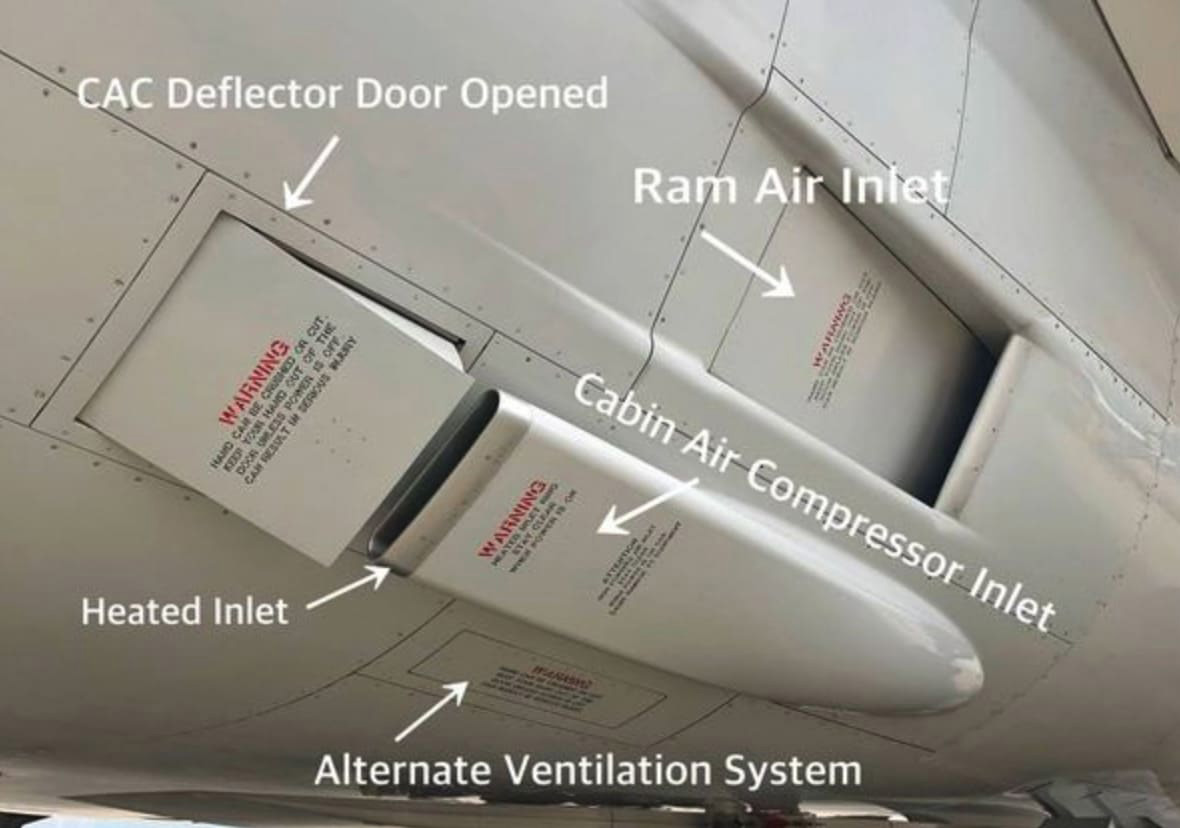
Advertisement
Operation With Loss of Cabin Pressurization - If a depressurization event occurs, the outflow valves close to preserve cabin pressure. While the airplane is descending and cabin altitude is increasing, the outflow valves remain closed until the airplane descends below the cabin altitude limit is reached:
FWD CARGO FLOW Selector - The HIGH (ventilation) position is selected for maintaining perishable, temperature sensitive, or any animal carriage.
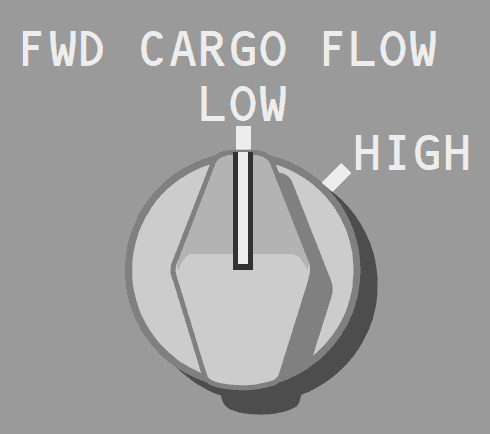
High ventilation flow is used to prevent cargo odors from entering the passenger cabin, or to remove cabin odors. It is also used for live animal carriage or other odorous cargo.
If one pack is in standby cooling and the other pack is operating normally:
The pack will restart automatically when altitude and outside temperatures are suitable for standby cooling.
Pressurization System Automatic Operation - During some degraded operations the cabin may be commanded to climb to as high as _____
This can occur if the air conditioning system is not achieving cabin temperature and ventilation rate targets, and would be more likely with an inoperative pack or CAC.
Forward Cargo Air Conditioning (FWD CARGO AC) Control - Provides automatic temperature control for the forward cargo compartment. Turning the control toward C or W sets the desired target temperature between:

Landing altitude (normally provided by the FMC) can be manually set using the LANDING ALTITUDE selector. Landing field selection limits are:
Pulling the selector out to the detent removes the FMC landing altitude and displays pressurization system indications on the EICAS display.
